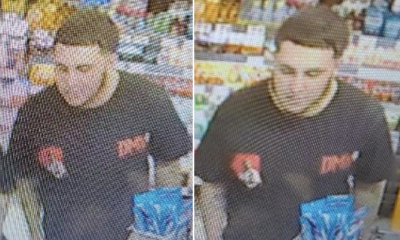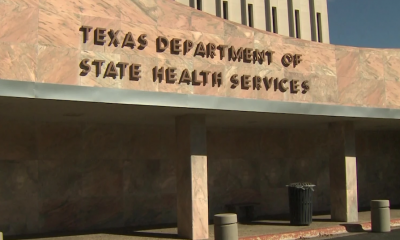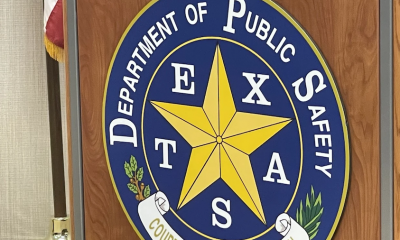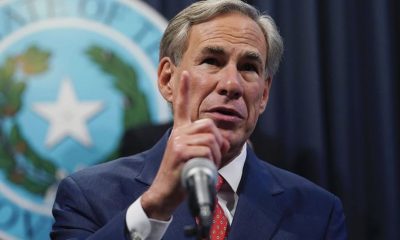U.S. News
The Voter Suppression in Dallas That No One Is Talking About
DALLAS, TX – In his last year in office, former Mayor Mike Rawlings made it known there was one more big thing he wanted to do: move city elections from May to November. For City Council and mayoral races, voter turnout in Dallas is among the worst in the country. Moving these elections to November, when voters here tend to put up more respectable numbers deciding on state and national contests, would increase participation in local politics. Almost nobody disputes this.
Simple enough, then. Move local Election Day to November and watch turnout shoot up. But Rawlings couldn’t get it done by the time his term ended. He didn’t really get that close. And among elected officials in Dallas, this was—and remains—a lonely position.
“Politicians don’t want it, because they want to stay elected. As long as they keep turnout down, they think they’ve figured out how to stay elected,” Rawlings said this week. It’s been more than two years since he left office, and more than two years since he failed to get local elections moved to November. It’s still pretty easy to get the former mayor fired up on the subject.
We’re worse off as a city when a small amount of voters decide who has power, Rawlings says, and he’s “blown away” that people opposed to restrictive new voting rules being considered by the Texas Legislature aren’t also “out rallying about” how holding municipal elections in May privileges a select few voters. (A separate bill now being floated by state lawmakers would allow Texas cities to change their local election dates; more on that in a bit.)
“I find very few elected officials that think this is a good idea,” he says. “Sad to say, most of them believe an educated small group of voters is better than a large amount of turnout. The last time I looked, that’s voter suppression.”
Politicians prefer the status quo and the media doesn’t cover it, and so many voters understandably don’t even know when Election Day falls in May, he says. Turnout for Saturday’s Dallas City Council elections was as low as ever. Dallas County registered a turnout of less than 10 percent of registered voters, which is especially bleak when compared to the record-breaking 66 percent who showed up for last November’s presidential election.
“As you will see with the City Council election runoffs in June, in some of these races there will be 50 or 100 people who decide the future of major issues in this city,” Rawlings says.
History backs him up there, and the numbers also support the notion that holding local elections in November would juice turnout. In the last decade, Texas cities including Austin and El Paso moved city council and mayoral elections from May to November of even-numbered years and watched their turnout improve. Austin’s turnout for its 2018 mayoral election was over 41 percent, almost three and a half times Dallas’ turnout for our mayoral race in 2019. (Voters in Austin, who moved mayoral elections to even-numbered years coinciding with gubernatorial races in 2012, on Saturday approved switching again to line them up with presidential elections.)
Houston has long held its city elections in November of odd-numbered years, when they won’t coincide with presidential, gubernatorial, or federal mid-term elections. Even that works better. Houston voters regularly turn out in much greater relative numbers than their counterparts in Dallas, San Antonio, and Fort Worth, three cities that continue to hold elections in May. In 2019, when all four cities held mayoral elections, Dallas had 12.5 percent turnout. San Antonio was at 11.5 percent and Fort Worth a little more than 9 percent. In Houston, turnout topped 22 percent. You don’t see this turnout disparity for presidential elections.
This is according to data compiled by federal political analyst David de la Fuente, a Dallas resident who is drafting a white paper that urges the city of Dallas, Dallas ISD, and Dallas College to move their elections to November of odd-numbered years. There would be some kinks to work out (Dallas ISD would have to change its trustees’ three-year term lengths, for example), but the transition would be relatively smooth and the benefits are extremely clear. Consolidating elections would be cheaper, for one thing, de la Fuente writes. It would increase turnout, as the cases of other cities in Texas demonstrate. And it would be the right thing to do.
“Low turnout is the cause of the battle between structural impediments and apathy,” de la Fuente writes. “By reducing the structural impediments, Dallas can make a promise to its voters that turning out isn’t such a hassle…Dallas’ local governments can make a promise to voters that if they just show up every November, they won’t miss a chance to elect a government of their choosing at every level from president to school board.”
Those structural impediments aren’t easy to overcome, as shown by Rawlings’ previous efforts. Whatever pushback he might have received from his elected colleagues at the time, the former mayor’s public drive to move elections also hit a dead end in Austin. Two years ago this month, Rawlings spoke to legislators in support of a bill that would have allowed city council members and then voters in Dallas to decide whether to move local elections to November.
It’s unclear whether other Texas cities that changed their election dates in the last 10 years applied for state permission before the fact. Changes to Dallas’ city charter, which outlines the date for municipal elections, require voter approval. Typically, to get proposed changes to the charter on the ballot, you need the support of a majority of City Council members or a petition collecting the signatures of more than 10 percent of registered voters in Dallas. “We can do petitions, but the easiest thing is to get it done in a legislative session,” Rawlings says. “They gave permission to Austin and El Paso and Houston. They didn’t give us the permission.”
Rawlings says the city attorney told him that this sort of legislative approval was required. (The city attorney’s office didn’t respond to my messages; a city of El Paso spokesperson sent over the minutes of a 2013 meeting in which the city council there voted to put an election date change to the city charter on the ballot, which as far as I can tell makes no mention of legislative permission.) Rawlings’ recollection does jibe with the memory of state Sen. Nathan Johnson, D-Dallas, who filed the 2019 bill that would have cleared the way for Dallas to take the issue to voters.
“As I recall, statutorily the only cities that could do that have been given permission by the legislature,” Johnson says. “They [Austin and El Paso] had already been given permission.”
Whatever the case may be, the bill died.
“It shot out of the Senate like 30-to-1 or something,” he says. “In the House, there was substantial resistance. It turned partisan, frankly. There were conservative Republicans in the Senate who thought it was awesome. Conservative Republicans in the House thought it was some sort of ploy to get people to vote more often.”
It may have been another victim of the battle over local control between the Texas Legislature and Texas cities, which has grown fiercer in recent years. “There is a really strong bent in the Legislature these days to control decisions that might be made better at the municipal level,” Johnson says.
But even as state lawmakers now consider new rules that would make voting significantly harder for many residents, another bill has surfaced this legislative session. This time it is a House bill “authorizing certain political subdivisions to change the date on which their general election for officers is held.” House Bill 2640 would let any city in Texas take steps to change their elections to be held in November. The bill has made its way out of the house and to the senate, says Johnson, who’s supportive of moving local elections to November for many of the same reasons as Rawlings.
It’s true that, if local elections were moved to November in even-numbered years, voters hoping to cast a ballot for their presidential or congressional pick may not bother with the unrecognizable city council candidates whose names would appear toward the bottom of the ballot. But “even if you assume a ridiculously high rate of ballot dropoff, you’re still going to triple your voter turnout,” Johnson says.
It’s also true that federal and state elections get more attention than city contests, but Dallas’ perennially low voter turnout seems like evidence that local candidates aren’t exactly grabbing the spotlight even with less crowded ballots in the spring. And voters can still get informed about City Council races alongside items higher on the ballot.
“While I understand that national and state issues might overshadow local elections, it’s not like these [local] issues are getting a whole hell of a lot of attention outside of yard signs,” Johnson says.










